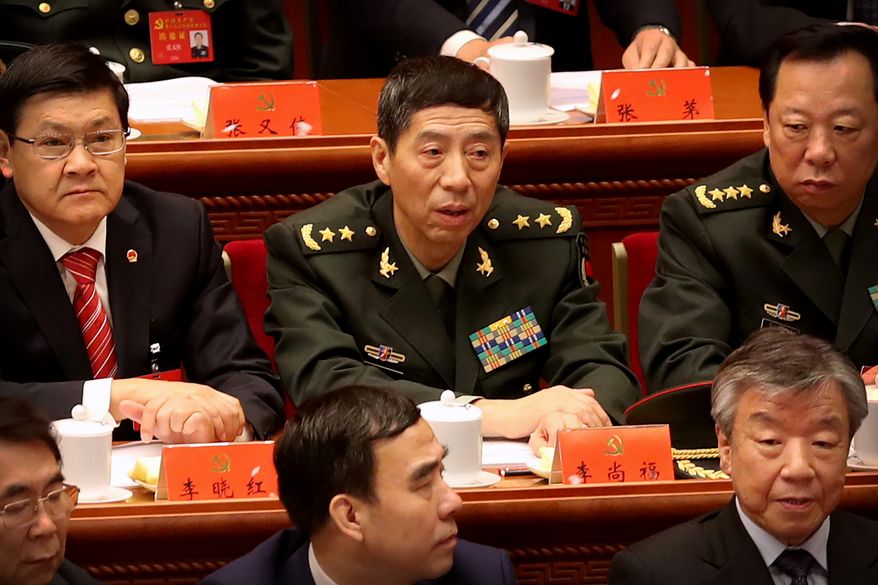
Li Shangfu (center), who was slapped with U.S. sanctions this week for buying arms from Russia, is director of the Equipment Development Department of China’s Central Military Commission. The department announced a database that will likely benefit from China’s theft of 22.1 million records on American federal workers, including those with security clearances, from the Office of Personnel Management in 2015. (Photo by: Mark Schiefelbein/Associated Press/File)
China’s People’s Liberation Army (PLA) is stepping up open-source spying on the U.S. military and other foreign militaries that will utilize artificial intelligence means.
According to a procurement notice from China’s Central Military Commission, the new database is a six-month project to set up an “Open Source Intelligence Database on Foreign Militaries.”
The revealing notice was published by the commission’s PLA Equipment Development Department, whose director, Lt. Gen. Li Shangfu, was slapped with U.S. sanctions this week for buying arms from Russia.
The database will likely benefit from China’s theft of 22.1 million records on American federal workers, including those with security clearances, from the Office of Personnel Management in 2015. Chinese hackers also stole an estimated 80 million records on Americans from health care insurance giant Anthem. Continue reading


